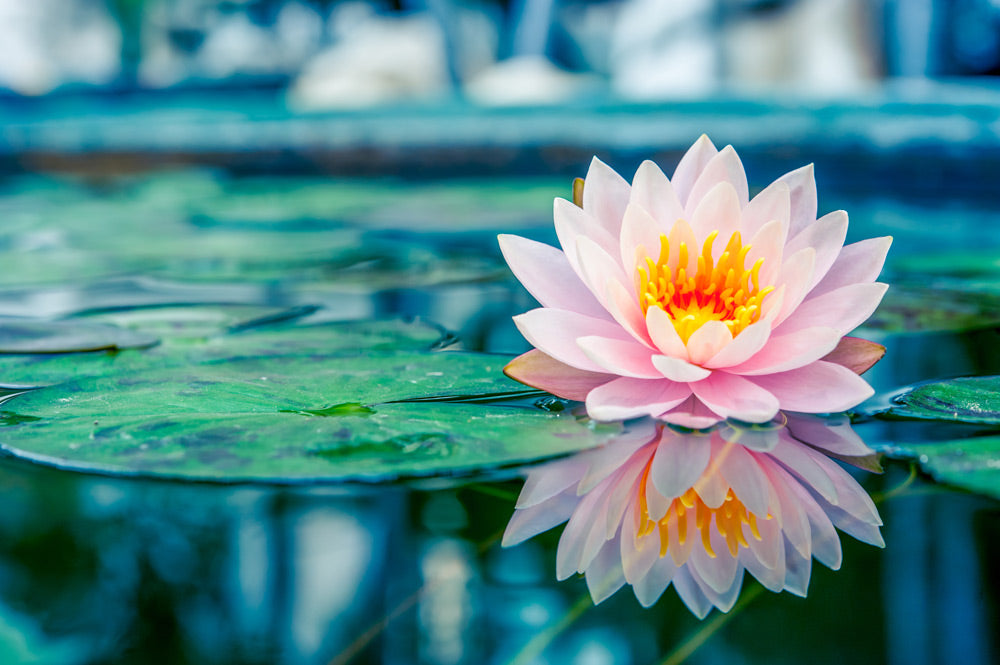From the lotus blooming in muddy waters to roses laid at sacred altars, flowers have long held spiritual meaning across the world’s major religions. Their colors, scents, and transient beauty symbolize everything from divine love to life’s impermanence. In rituals, ceremonies, and scripture, flowers speak a universal language of reverence, purity, and connection to the divine.
In this comprehensive guide, we’ll explore how different faiths-Hinduism, Buddhism, Christianity, Islam, Judaism, and beyond-use flowers in symbolic and ceremonial ways. You’ll learn about sacred blooms, their spiritual meanings, and the cultural traditions that have kept floral rituals alive for thousands of years.

And if you’re looking for flowers to honor life’s sacred moments, explore Ecoroses LA’s curated floral collection - perfect for rituals, remembrance, and meaningful gifting.
🌸 The Universal Language of Flowers in Religion
Flowers are more than ornamental-they are spiritual tools. Across faiths, they represent:
-
Life and death
-
Rebirth and transformation
-
Divine love and beauty
-
Purity and enlightenment
-
Sacrifice and offering
Flowers are offered in temples, worn in processions, planted at gravesites, and used in meditations. They serve as both literal and metaphorical bridges between the human and the divine.
🌼 Hinduism: Offering Beauty to the Gods
In Hinduism, flowers are essential to daily worship (puja) and larger temple ceremonies.
🌺 Sacred Flowers:
-
Lotus (Padma) – Purity, creation, spiritual awakening
-
Jasmine – Love, sensuality, devotion
-
Marigold – Auspiciousness, endurance
-
Rose – Reverence, inner beauty
Rituals & Symbolism:
-
Flowers are offered to deities’ idols as a gesture of love and surrender.
-
The garlanding of statues or devotees is seen as a sign of respect.
-
In festivals like Diwali and Durga Puja, floral mandalas and torans (garlands) adorn temples and homes.
Did You Know?
Each deity is associated with specific flowers. For example, Vishnu is often offered tulsi (holy basil), while Lakshmi prefers lotuses.
🌸 Buddhism: Flowers as Metaphors for Enlightenment
In Buddhism, flowers symbolize the impermanence of life-a core teaching in the faith.
🌼 Sacred Flowers:
-
Lotus – Spiritual growth, detachment from the material world
-
Peony – Wealth, honor, compassion (especially in Chinese Buddhism)
-
Chrysanthemum – Transcendence of suffering
Rituals & Symbolism:
-
Lotus flowers are used in meditation visualizations and as motifs in sacred art.
-
Flowers are placed at Buddha statues and shrines as offerings.
-
In Vesak (Buddha Day), people decorate temples with fresh flowers to honor the Buddha's birth, enlightenment, and death.
Metaphorical Meaning:
The blooming lotus represents rising above suffering and achieving enlightenment, much like a flower growing through muddy water.
🌹 Christianity: Blooms of Faith and Sacrifice
Christian symbolism often connects flowers to biblical stories, saints, and the Virgin Mary. Churches use flowers to beautify spaces and mark holy seasons.
🌷 Sacred Flowers:
-
Rose – Love, martyrdom, the Virgin Mary
-
Lily – Purity, resurrection, Mary’s chastity
-
Palm fronds – Victory, martyrdom, used in Palm Sunday
-
Daffodil – Renewal, Easter celebration
Rituals & Symbolism:
-
Altar arrangements are used during Mass, weddings, and funerals.
-
During Easter, lilies symbolize Christ’s resurrection.
-
The “Mystical Rose” is a title for Mary, and rose gardens are often found in monasteries.
Fun Fact:
The Passion Flower contains symbols of Christ’s crucifixion-like its 10 petals representing 10 apostles and filaments resembling the crown of thorns.
🌹 Islam: Floral Geometry and Spiritual Beauty
While Islamic art avoids the depiction of living beings in many contexts, flowers and botanical motifs play a key role in expressing divine beauty and order.
🌺 Symbolism in Islam:
-
Roses – Associated with the Prophet Muhammad and divine love
-
Jasmine – Purity and paradise
-
Lilies and tulips – Popular in Ottoman art to symbolize the unity of God (tulip in Arabic shares letters with “Allah”)
Uses in Rituals:
-
Flowers are used at grave sites as symbols of peace and mercy.
-
Sufi mysticism often uses floral metaphors in poetry and music to represent longing for the Divine.
Art & Architecture:
-
Mosques and Quranic manuscripts are adorned with floral patterns, reflecting the harmony of God’s creation.
🌸 Judaism: Blooms in Festivals and Symbolism
In Judaism, flowers symbolize renewal, fertility, and divine blessing. They appear in biblical texts, ceremonies, and holy day rituals.
🌼 Symbolic Flowers:
-
Lily – Beauty, associated with the Song of Songs
-
Almond blossom – Vigilance, divine favor (Aaron’s staff)
-
Pomegranate flowers – Righteousness and abundance
Rituals:
-
During Shavuot, synagogues and homes are decorated with flowers to celebrate the giving of the Torah on Mount Sinai.
-
At Jewish weddings, flowers adorn the chuppah (wedding canopy) to symbolize joy and divine blessing.
Botanical References:
The Torah and Talmud contain over 30 references to flowers and plants-many tied to spiritual truths and moral lessons.
🌷 Other Traditions: Global Flower Beliefs
✨ Native American Beliefs
-
Flowers symbolize medicine, healing, and spirits.
-
Certain blooms are used in smudging ceremonies and sacred bundles.
🕯️ African Spirituality
-
Flowers are used in ancestral altars and ceremonies, symbolizing life and spiritual continuity.
🔮 Paganism & Wicca
-
Flowers like mugwort, lavender, and rose are used in spells, protection rituals, and seasonal festivals like Beltane and Ostara.
💐 Modern Rituals Using Sacred Flowers
Even in non-religious or interfaith practices, flowers play key roles:
-
Weddings: Symbolizing unity and love
-
Funerals: Representing honor and remembrance
-
Meditation: Used for focus and sensory grounding
-
Yoga & Reiki: Flowers placed on altars to enhance healing energy
Florists often tailor arrangements to align with cultural and spiritual meaning-ensuring that every bouquet holds both beauty and intention.
🛒 Where to Find Spiritually Meaningful Flowers
When choosing flowers for religious or spiritual use, opt for:
-
Ethically sourced, fresh blooms
-
Seasonally appropriate varieties
-
Florists who understand the cultural meaning of flowers
Whether for personal prayer, a sacred celebration, or a meaningful gift, Ecoroses LA offers a curated collection of premium blooms, thoughtfully arranged to honor beauty, spirit, and occasion.
🌼 Final Thoughts: Blooms Beyond the Surface
From temple altars in India to the chapels of Europe, flowers connect the human experience with the divine. They remind us of life’s fragility, nature’s majesty, and the unseen truths that bind cultures and beliefs.
As we move through life’s sacred milestones-birth, love, death, renewal-flowers walk with us, silently expressing what words often cannot. They are offerings, messengers, and silent prayers… all wrapped in color and fragrance.
So next time you encounter a flower-whether in your hand or in a ritual-pause to consider the ancient wisdom it carries. You just might be holding something sacred.

